
Global organizations have recognized the power of religion in pushing their agenda, but some religious leaders warn that it strays too far from the church.
By Darlene McCormick Sanchez

Deep in a Cambodian old-growth forest, Buddhist “ecology monks” wrap trees in saffron clerical robes before ordaining the trees into the Buddhist faith.
The practice is an example of “forest activism” that spread to Cambodia after Thai monks in the 1990s began ordaining trees as they would a new monk.
Ordained trees become sacred and protected from illegal logging because harming an ordained monk is taboo in the Buddhist religion.
The recognition that religion can be a powerful tool when applied to selling the global warming narrative has been gaining traction at the United Nations and the World Economic Forum (WEF), where faith has traditionally been kept at arm’s length.

The globalist agencies are now welcoming help from religious leaders fighting climate change, one of the 17 U.N. sustainable development goals for 2030.
But some religious leaders are alarmed by their colleagues’ involvement in the climate debate.
“I think this is a dangerous agenda, and it keeps the church from doing what its primary calling is, and that is to win people to faith in Jesus Christ,” Robert Jeffress, pastor of First Baptist Church of Dallas, told The Epoch Times.
“We ought to be much more concerned about what God thinks.”
The U.N. predicts doom if urgent action isn’t taken to save the earth from the calamity of rising oceans and extreme weather caused by global warming, although scientific evidence remains controversial.
The U.N.’s 2030 climate goal calls for “deep, rapid, and sustained” reduction in greenhouse gas emissions by 42 percent, and the U.N. is aiming for net zero emissions by 2050. It predicts that global temperatures will rise by more than 1.5 degrees Celsius by 2035.
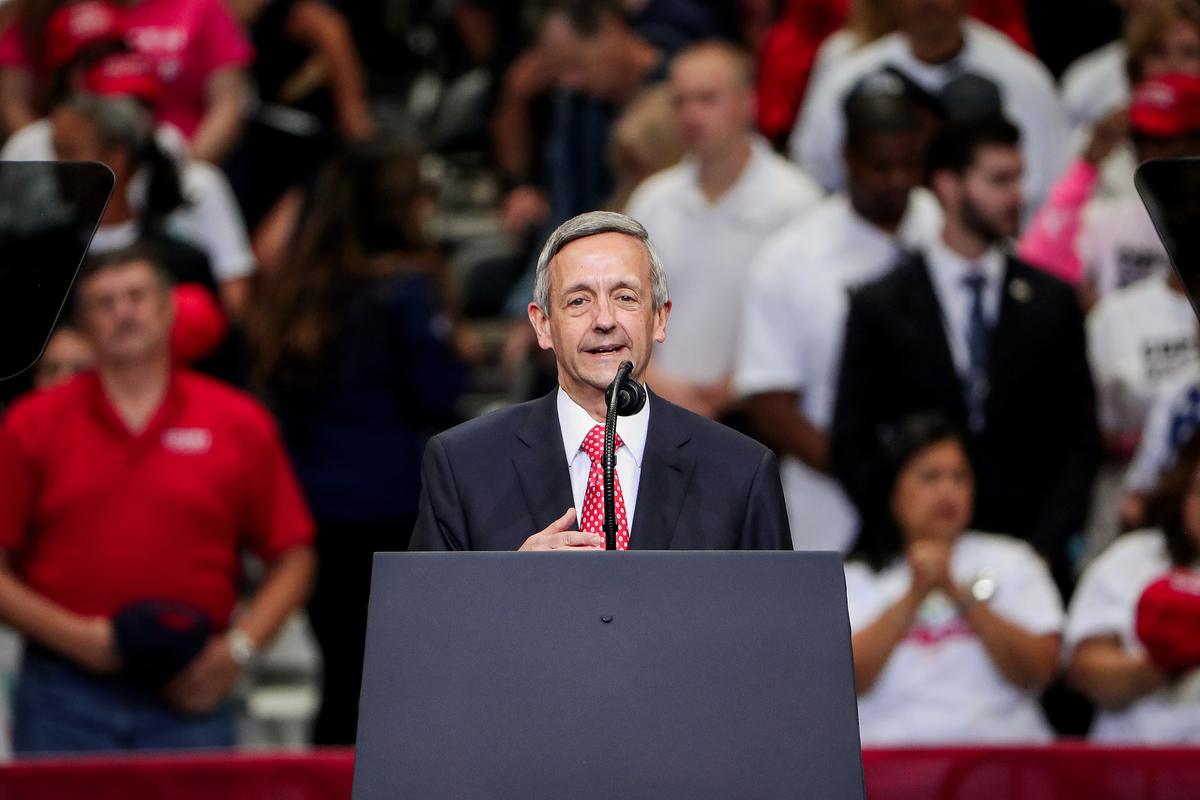
Crucifying Fossil Fuel
In anticipation of the U.N. Paris Climate Conference in 2015, Buddhist, Hindu, Muslim, and Christian groups issued climate change declarations, marking a turning point in faith leader support for the global climate agenda.
The U.N. heralded the news of Pope Francis’s papal letter on climate change that year to all Roman Catholic bishops, titled Laudato Si.
The spiritual leader of 1.36 billion Catholics lent his considerable clout to saving the planet, lamenting that environmental degradation was hurting the world’s poorest citizens.
“I urgently appeal, then, for a new dialogue about how we are shaping the future of our planet,” Pope Francis wrote.
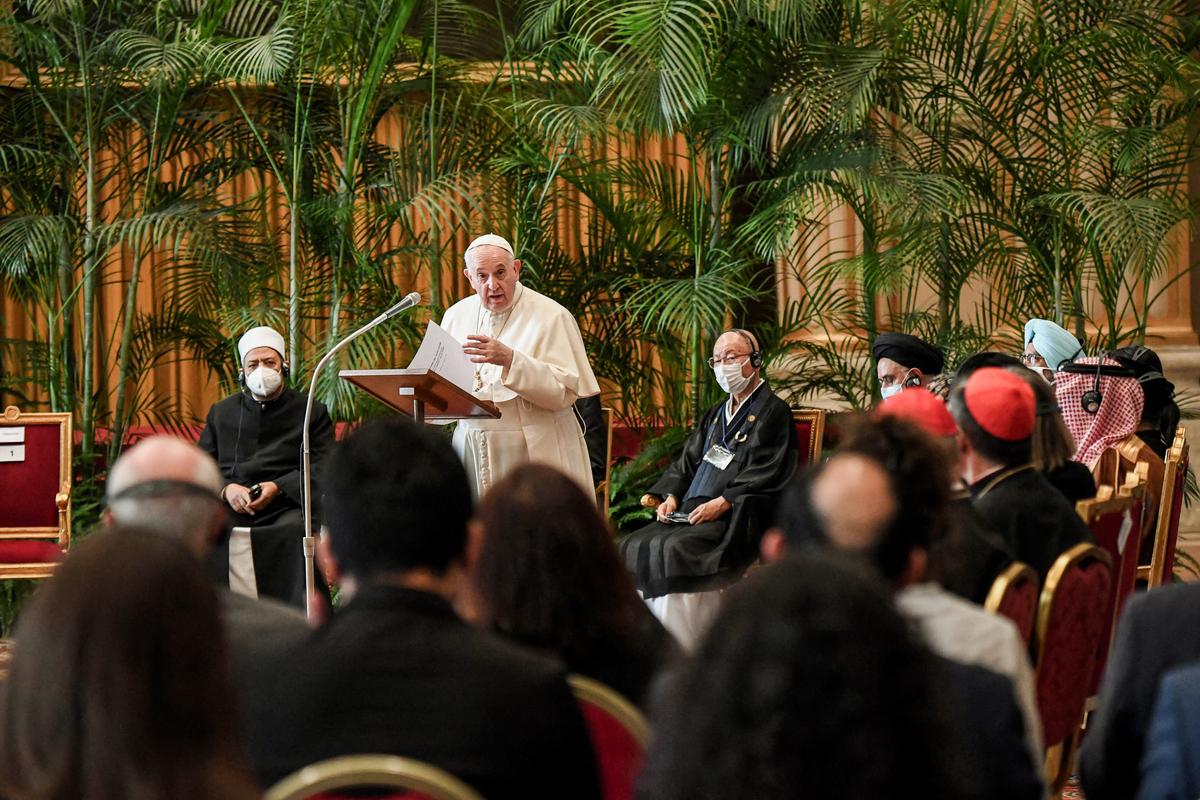
And although the pontiff couldn’t attend this year’s COP28 U.N. climate summit in Dubai, United Arab Emirates, he sent a message for the inauguration of the first-ever Faith Pavilion at the event, stressing the responsibility of religious leaders to care for the planet.
Many religious leaders have joined U.N. officials in demanding that financial institutions stop funding fossil fuel projects.
Leaders of the World Council of Churches, Muslim Council of Elders, and New York Board of Rabbis released statements in 2021 and 2022 saying that banks, pension funds, and insurance firms had a “moral imperative” to stop investing in fossil fuels.
They pressured financial institutions to invest in so-called renewable energy for “children and future generations of life on earth.”
Michael O’Fallon is the founder of Sovereign Nations, a media website dedicated to the preservation of national sovereignty.
He spoke with The Epoch Times about what he sees as a sinister development.
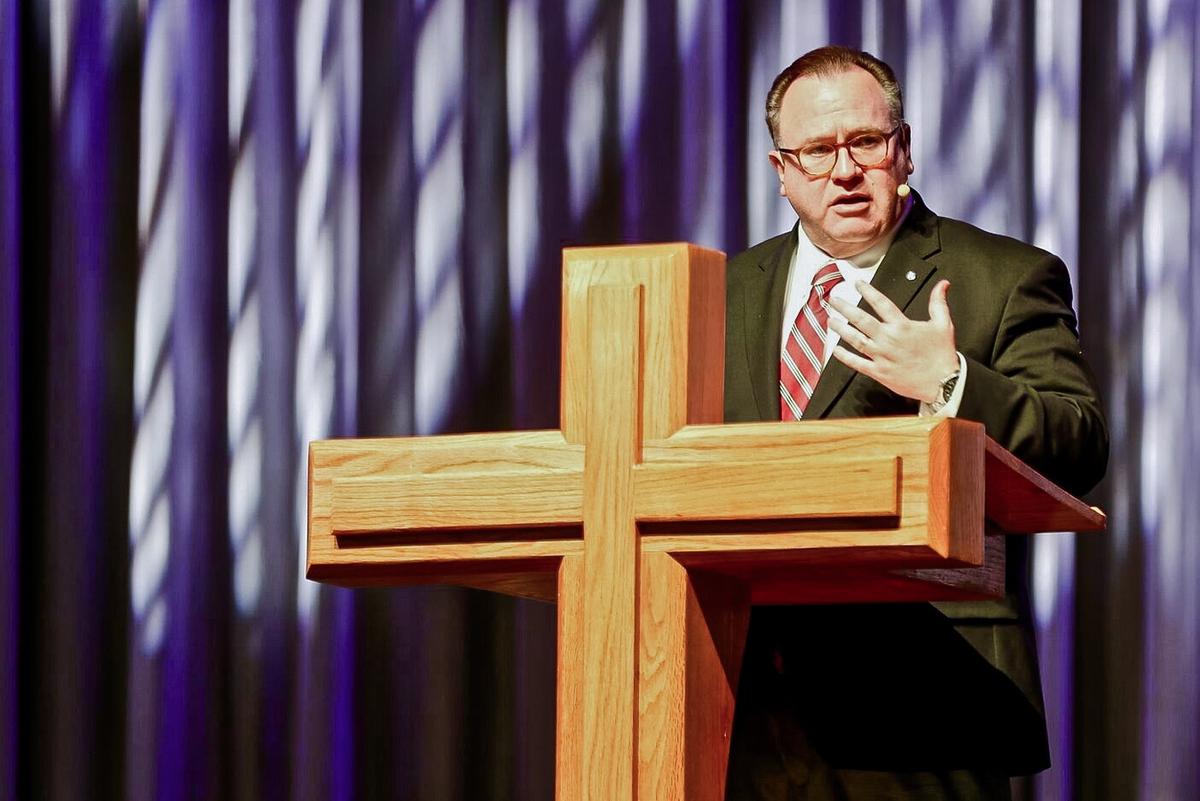
The climate change agenda is part of the U.N. and WEF’s quest to govern the world’s energy and wealth, he said.
“This is going to be all-encompassing. It’s going to change everything unless we completely stop it,” Mr. O’Fallon warned.

As evidence of the new world order, he pointed to the Terra Carta, a document on people and planet rights modeled after the 808-year-old Magna Carta.
The 2021 Terra Carta is part of the sustainable market plan started by British King Charles, who’s head of the Church of England.
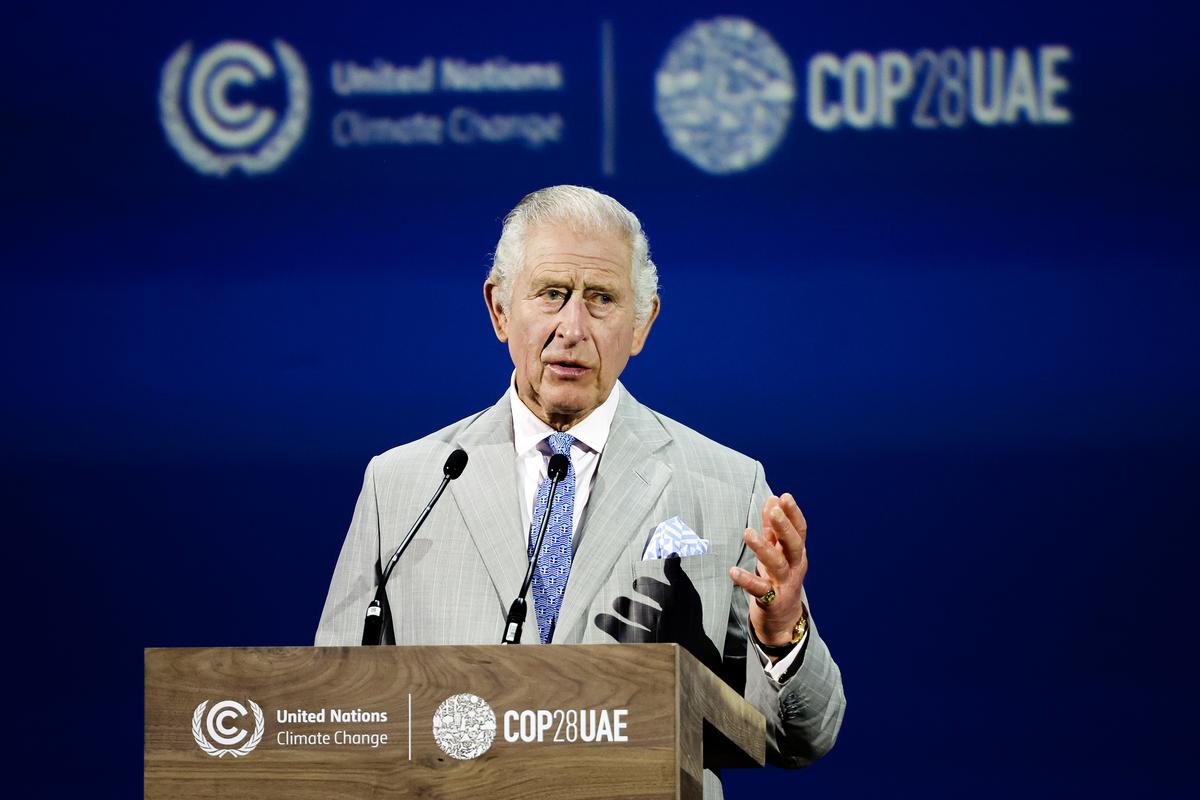
According to its mandate, “nature” must be given “fundamental rights and value” to ensure a lasting and tangible legacy for this generation.
Even otherwise traditionally conservative Christian groups, such as the National Association of Evangelicals (NAE), have joined the environmental movement.
Christians believe in following in Jesus’s footsteps by helping the poor and vulnerable—who globalists contend will suffer the most from climate change.
“We wish to navigate the complexities of our times, including issues like climate change, with Biblical clarity and a deep love that reflects God’s own heart for this world, especially for those least able to enjoy its blessings,” NAE President Walter Kim said in a 2022 statement.
But Mr. Jeffress said he isn’t buying what the U.N. is selling.
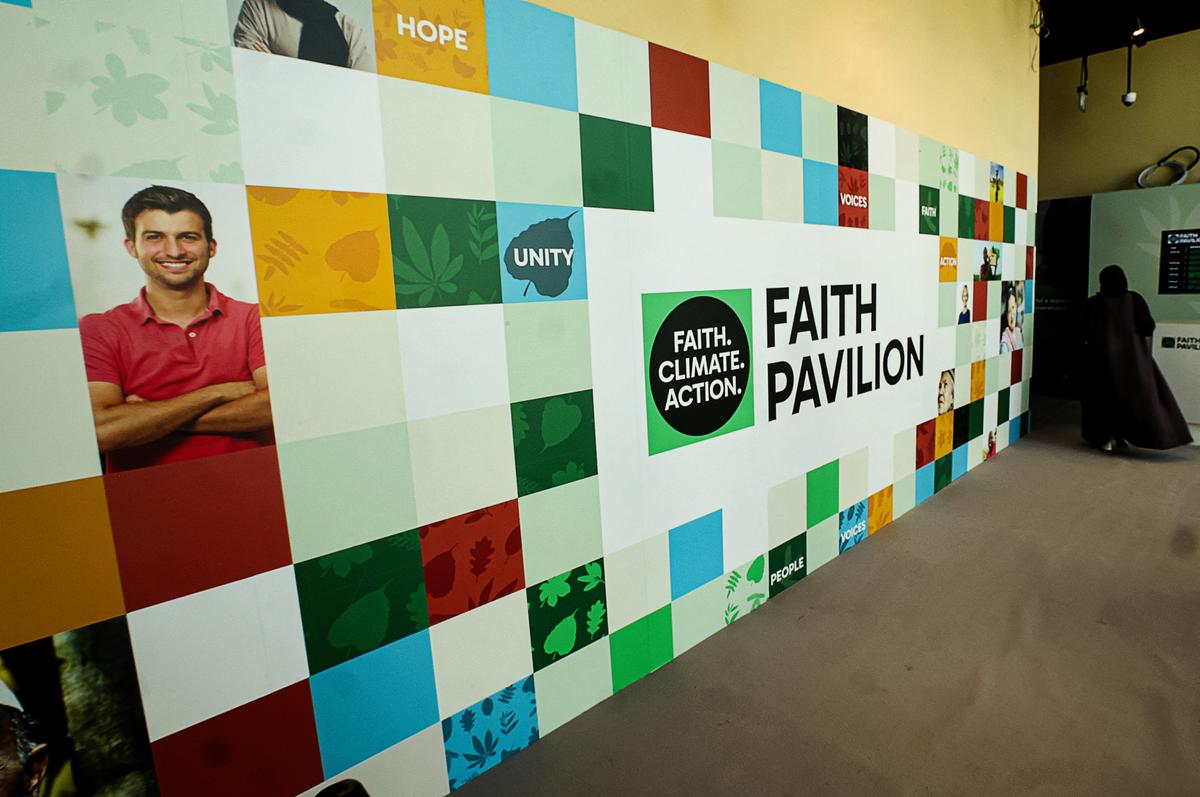
“Look, let’s be clear, Jesus Christ is the one who sets the agenda for the church, not the United Nations,” Mr. Jeffress said.
“And for churches to adopt the United Nations purpose statement and causes is really the church prostituting itself, allowing itself to be used by an outside organization.”
The concept of nations is biblical, meaning a global government isn’t part of God’s plan, he said.
In his new book, “Are We Living in the End Times?” being released this month, Mr. Jeffress said people need to be politically and spiritually aware of what’s happening. The Southern Baptist pastor is known as a spiritual adviser to former President Donald Trump.
The so-called climate urgency has galvanized environmental activists from GreenFaith and Interfaith Power and Light to stage protests and disruptions.
GreenFaith organized a demonstration last year at BlackRock’s New York location that resulted in arrests after protesters warned the colossal investment firm to stop “destroying the earth” by investing in fossil fuels.
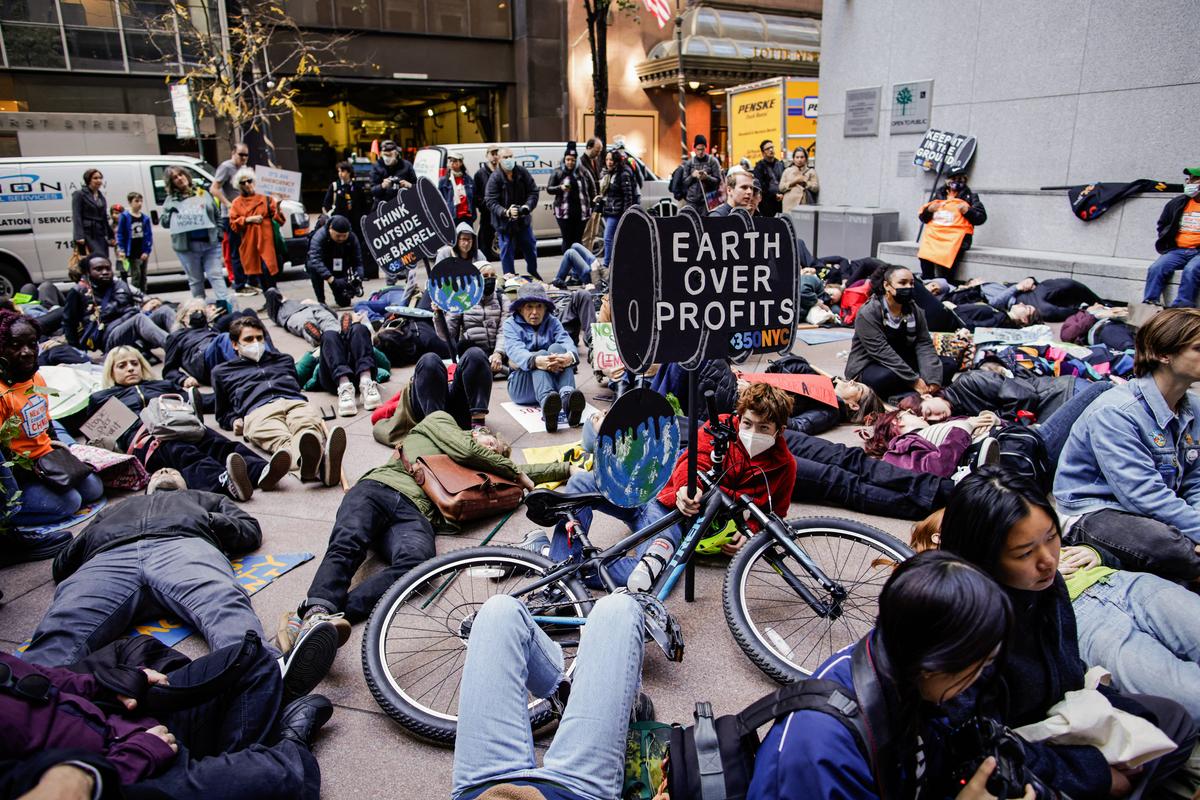
Part of the global appeal to stop so-called climate change is the idea that the world’s poor will suffer the most from widespread drought and flooding.
Yet critics say the globalist cure is far worse than a climate change scenario that some scientists dispute. And they say they aren’t surprised that the U.N. is incorporating religion into its pressure campaign.
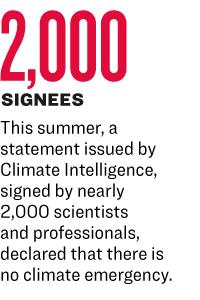
The independent foundation Climate Intelligence (CLINTEL) issued a statement this summer declaring that there’s no climate emergency. The document has been signed by nearly 2,000 scientists and professionals from about 60 nations as of Dec. 1.
“[The] hysteria surrounding the topic is totally unjustified. The ‘cure’—getting rid of fossil fuels ASAP and replacing them with renewables—probably will be worse than the ‘disease,'” CLINTEL founding member Marcel Crok told The Epoch Times in a previous interview.
The U.N.’s plan to harness the power of religion can be seen in its Kunming-Montreal Global Biodiversity Framework plan, which is a pact among countries developed in 2022 to save natural resources and endangered species throughout the globe.
According to the U.N., “the sizable reach and influence of religious and spiritual groups make them an important and natural constituency” to achieve its ambitious goals.
A similar 2022 Framework Convention on Climate Change meeting called for rich countries such as the United States to pay poorer countries reparations for “loss and damage” caused by climate change.
Likewise, the World Economic Forum released a report in 2016 titled “The Role of Faith in Systemic Global Challenges,” which includes a section that declares that climate change can’t be solved without religion.
Klaus Schwab, WEF founder and executive chairman, told the Global Agenda Council that values can’t be justified solely through intellectual reason, which is why faith must be involved, according to the report.
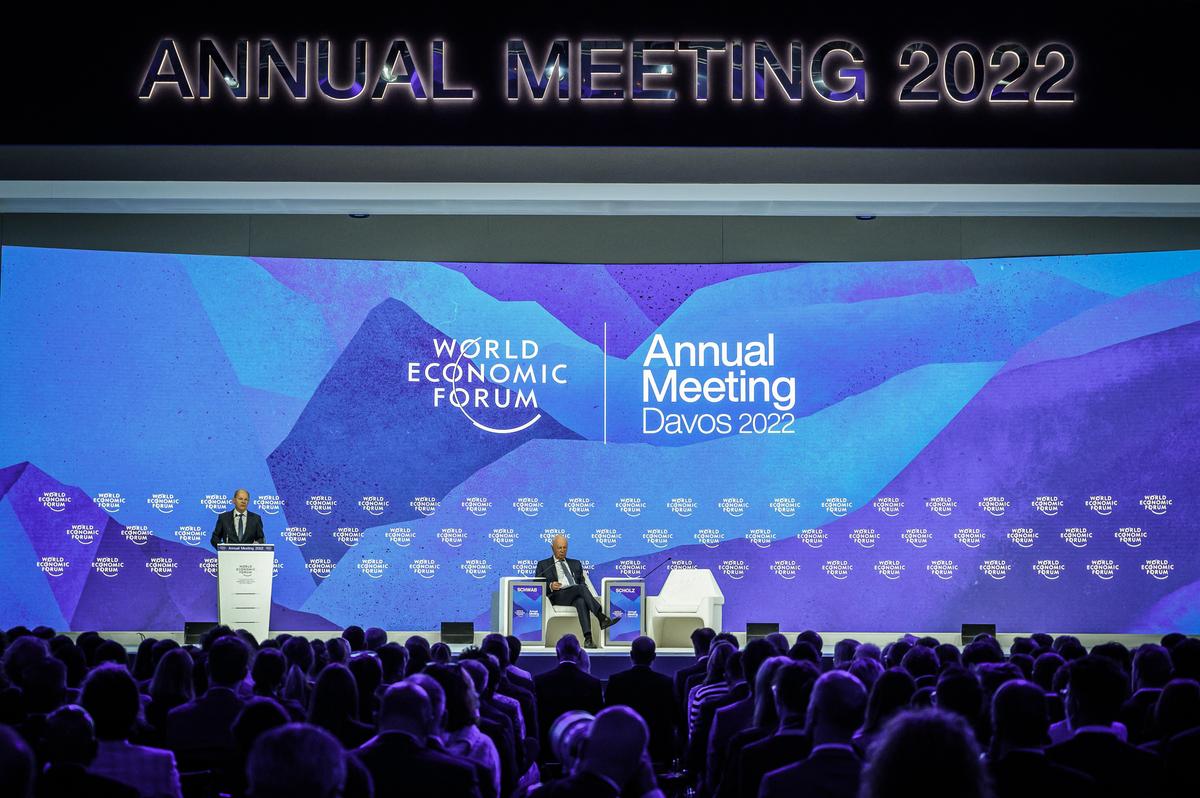
Religion offers a moral stance that can help “legitimize the cause,” the report states.
“There is a need to frame narratives of hope and possibilities,” it reads. “Religious traditions have ample experience of combining short-term perspectives with a long-term perspective and compelling narratives.”
Powering Prosperity
Diana Furchtgott-Roth is the Heritage Foundation’s director for energy, climate, and the environment and is an adjunct professor of economics at George Washington University.

Ms. Furchtgott-Roth told The Epoch Times that she isn’t surprised that international organizations are using religion to persuade working-class people that they must make sacrifices to protect the planet.
“I think that environmentalists use any method they can to push their agenda because their agenda results in more expensive electricity prices and more expensive transportation prices,” she said.
Climate agenda disciples don’t seem to understand that renewable energy is less reliable and more expensive, meaning that it’ll lower the living standards for the middle class, according to Ms. Furchtgott-Roth.
Religious leaders may be well-intentioned, she said, but they need to realize that plentiful, cheap energy is one reason for mass migration to Western countries.
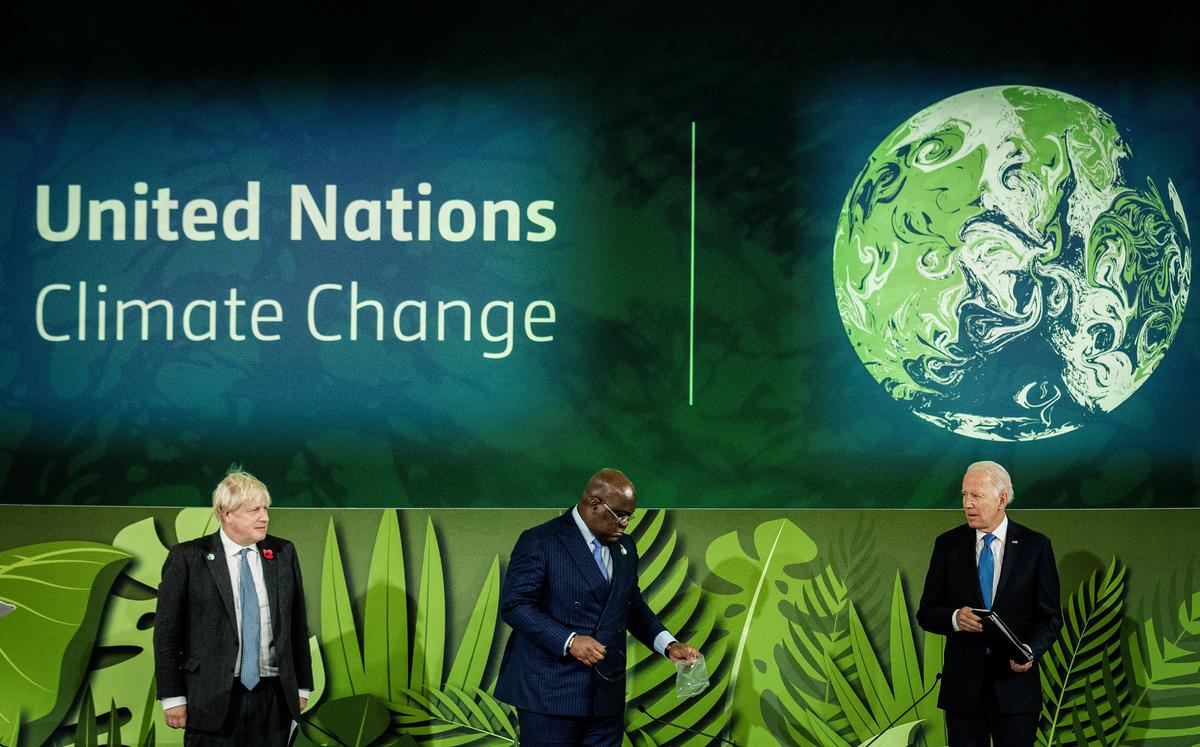
There’s less available energy in Latin America and Africa, meaning that life is harder for the poor, Ms. Furchtgott-Roth said.
“More energy promotes human advancement, human progress. You don’t have to carry water in buckets,” she said. “You don’t have to light candles or cook over wood and dung.”
And limiting fossil fuels could cause the very food shortages that some religious leaders fear will be the result of climate change.
Rising fuel costs are already affecting food prices.
The Independent Commodity Intelligence Services, which analyzes markets, predicted in September that food prices would continue rising as energy and fertilizer costs increase.
Ms. Furchtgott-Roth pointed to Sri Lanka’s sudden ban in April 2021 on synthetic fertilizers and pesticides in food production.
At the 2021 U.N. Climate Change Conference, Sri Lankan President Gotabaya Rajapaksa proudly outlined his country’s move toward organic agriculture.
A year later, crops had been decimated and thousands of Sri Lankans, facing starvation, stormed the presidential residence, forcing President Rajapaksa to step down.

“So we have real-life experiments of trying to grow agriculture without fossil fuels,” Ms. Furchtgott-Roth said.
Religious leaders who fear that climate change will harm the needy should understand that expensive electricity and transportation hurt the poor too.
She noted that for some people, environmentalism has become a religion unto itself.
